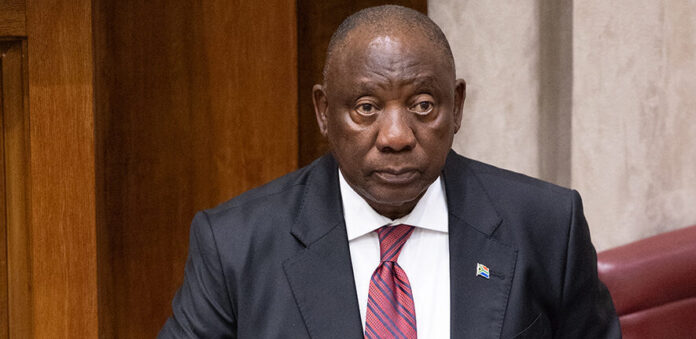Beleaguered Police Minister Senzo Mchunu has been placed on a leave of absence, with immediate effect, by President Cyril Ramaphosa who also announced the appointment of a commission of inquiry to probe claims made by KwaZulu/Natal police commissioner Lieutenant-General Nhlanhla Mkhwanazi at a press briefing last Sunday.
Professor Firoz Cachalia will be acting Minister of Police from the beginning of August. Cachalia is a professor of law at the University of the Witwatersrand.
The proposed judicial commission of inquiry will be chaired by Acting Deputy Chief Justice Mbuyiseli Madlanga. Justice Madlanga is retiring from the Constitutional Court at the end of this month “after years of distinguished service, and will therefore be able to give his full time and attention to the work of this commission”.
Justice Madlanga will be assisted by Advocate Sesi Baloyi SC and Advocate Sandile Khumalo SC, President Ramaphosa said.
The heart of Mkhwanazi’s claims
The President, who was away at a BRICS Summit in Brazil when Mkhwanazi dropped the bombshell, reiterated the facts thus: “Lt Gen Mkhwanazi alleged that the Minister of Police allegedly interfered with sensitive police investigations and colluded with business people, including a murder accused, to disband the Political Killings Task Team based in KwaZulu-Natal.”
President Ramaphosa repeated during the much-anticipated address that Lieutenant-General Mkhwanazi had said that a police investigation by the task team in Gauteng unmasked a syndicate controlled by a drug cartel, “which involves politicians, law enforcement officials from the SAPS, metro police and correctional services, prosecutors and the judiciary, as well as business people”.
The Commission will investigate allegations relating to the infiltration of law enforcement, intelligence and associated institutions within the criminal justice system by criminal syndicates. “Among the allegations that the Commission may investigate are the facilitation of organised crime; suppression or manipulation of investigations; inducement into criminal actions by law enforcement leadership; commission of any other criminal offences and intimidation, victimisation or targeted removal of whistle-blowers or officials resisting criminal influence.
“The Commission will investigate the role of current or former senior officials in certain institutions who may have aided or abetted the alleged criminal activity; failed to act on credible intelligence or internal warnings; or benefited financially or politically from a syndicate’s operations. These institutions are the South African Police Service, National Prosecuting Authority, State Security Agency, the Judiciary and Magistracy, and the metropolitan police departments of Johannesburg, Ekurhuleni and Tshwane.”
The Commission is expected to complete its work and submit a final report to the President after giving Interim reports within three and six months, respectively.



